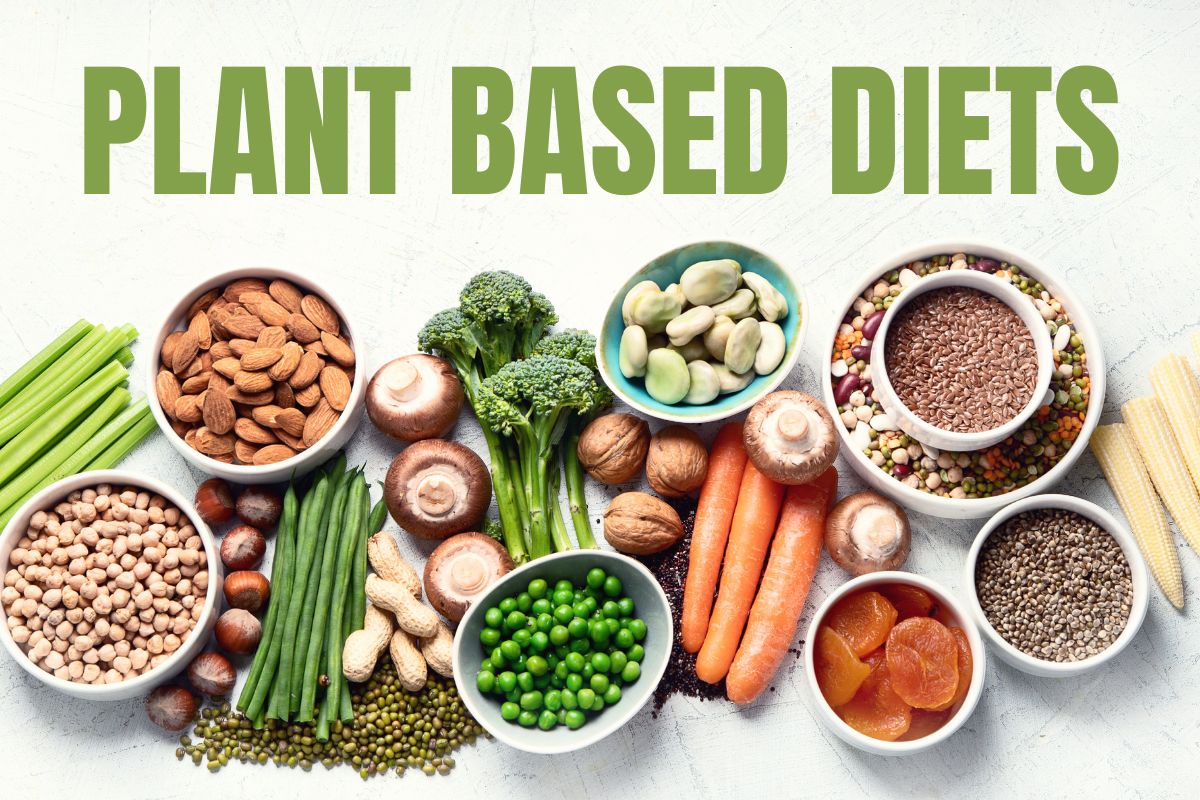A plant-based diet prioritizes whole and minimally processed foods from plants—vegetables, fruits, whole grains, legumes, nuts, and seeds—while limiting animal foods and refined items. It does not have to be vegan to deliver benefits; what matters most is diet quality. Healthier plant-based patterns (whole grains, legumes, nuts, vegetables, fruit) consistently outperform “plant-based” diets heavy in refined grains, sweets, juices, and ultra-processed options.
The latest on health outcomes (2024–2025)
Lower mortality and chronic disease risk
- A 2024 systematic review found that higher adherence to plant-based patterns was associated with reduced all-cause, cardiovascular, and cancer mortality (relative risks ~0.84–0.88).
- Large cohort analyses continue to show that “healthful” plant-based indices are linked with lower risk of major chronic diseases and mortality; the benefit depends on food quality.
- New cohort data in 2025 among predominantly Black and low-income Americans reinforce that healthy plant-based diets lower death risk, underscoring equity and applicability beyond affluent populations.
Also read: “Date Them ‘Til You Hate Them”: The Toxic Breakup Trend Taking Over Modern Dating.
Cardiometabolic protection
Recent meta-analyses and reviews continue to report a reduced risk of cardiovascular disease (CVD) associated with vegetarian/vegan dietary patterns (RR ~0.79–0.85), accompanied by improvements in LDL-cholesterol levels and weight, particularly when red/processed meats are replaced with plant proteins.
Diabetes and cancer specifics
A 2023 umbrella review found lower risks of type 2 diabetes and several cancers (notably pancreatic and digestive system cancers) among those adhering to plant-based patterns; the effects vary by cancer site and study quality. Bottom line: in 2025, the direction of evidence still favors well-planned, minimally processed plant-forward eating for longer, healthier lives—while reminding us that “plant-based junk food” won’t deliver the same benefits.
Where expert consensus stands now
In January 2025, the Academy of Nutrition and Dietetics issued a new position paper: appropriately planned vegetarian and vegan diets for adults are nutritionally adequate and can improve cardiometabolic outcomes. The update clarifies the Academy’s current stance and replaces the 2016 position. \ Several national and international frameworks also continue to emphasize plant-forward patterns for both health and sustainability, including the Planetary Health Diet (EAT-Lancet), which links adherence to reduced premature mortality and lower environmental impacts.
Ultra-processed plant foods: proceed with caution

Not all plant-based foods are equal. An expanding 2023–2025 literature associates high intake of ultra-processed foods (UPFs) with higher risks of obesity, hypertension, diabetes, and other adverse outcomes—even when those UPFs are meat-free. Evidence is mostly observational but consistent across regions. What about plant-based meats? Trials and reviews suggest they can improve LDL-cholesterol and weight when they replace red/processed meat, thanks to lower saturated fat and added fiber—but they’re still processed, so use them as bridges rather than staples.
Nutrients to watch (and how to cover them on a plant-forward plate)
We can meet nutrient needs entirely (or mainly) from plants with planning. Focus on:
- Protein & essential amino acids: Aim for ~1.0–1.2 g/kg/day if active or older. Mix legumes (beans, lentils, soy), whole grains, nuts, and seeds; tofu/tempeh/edamame are efficient anchors.
- Vitamin B12: If fully vegan, take a reliable cyanocobalamin supplement or use fortified foods routinely; even plant-forward omnivores who rarely eat animal foods may need fortification. Current position statements endorse supplementation when appropriate.
- Iron & zinc: Prioritize legumes, tofu, pumpkin seeds, cashews, oats; add vitamin-C-rich produce with meals to enhance absorption.
- Calcium & vitamin D: Use calcium-set tofu, greens (bok choy, kale), fortified plant milks/yogurts; consider vitamin D supplementation depending on sun exposure and testing.
- Iodine: Choose iodized salt or an appropriate supplement if avoiding dairy/eggs/seafood.
- Omega-3 (ALA/EPA/DHA): Flax, chia, walnuts, canola—plus consider algal DHA/EPA if fully vegan or low fish intake.
A simple, evidence-aligned daily plate:

- ½ plate: Vegetables and fruit (prioritize variety and fiber).
- ¼ plate: Whole grains (oats, brown rice, whole-wheat roti, quinoa).
- ¼ plate: Legumes/soy or other plant proteins (dal, chickpeas, tofu/tempeh).
- A small portion of nuts/seeds; use olive/mustard/groundnut oil in moderation; season with herbs/spices. This aligns with plant-forward guidance and the Planetary Health Diet’s flexible ranges.
Seven practical swaps that compound over time
- Swap red/processed meat → beans/soy twice weekly to start; scale up over months. Benefits track with the ratio of plant to animal protein
- Refined grains → whole grains (whole-wheat breads/rotis, brown rice, oats).
- Sugary drinks & juices → water/unsweetened tea/coffee; keep fruit whole.
- Plant-based meats as bridges (burger night) rather than daily staples.
- Snack upgrade: nuts, fruit, roasted chana instead of chips/sweets.
- Fortify smartly: choose B12/iodine-fortified plant milks and check labels.
- Plan protein at every meal (dal + grain, tofu + veg + quinoa, hummus + whole-grain bread).
Sustainability and planetary health (a 2024–2025 view)
Adhering to the Planetary Health Diet is associated with ~30% lower premature mortality and substantial reductions in greenhouse gas emissions, cropland use, and fertilizer needs, according to recent analyses led by Harvard collaborators. While exact percentages vary by model, the direction is consistent: more whole plant foods, less red meat, benefits both people and planet.
Current guidelines and what’s next
- Academy of Nutrition and Dietetics (2025): Endorses well-planned vegetarian/vegan diets for adults as nutritionally adequate and beneficial for cardiometabolic health.
- EAT-Lancet 2.0 (ongoing): Reinforces a plant-forward “Planetary Health Diet” as key to feeding 10 billion within planetary boundaries.
- National guideline trends (2024–2025): Advisory bodies increasingly emphasize plant proteins (beans, lentils, peas, soy) and limiting UPFs, though the strength of recommendations on UPFs varies with evidence quality.
A quick 7-day plant-forward template (mix & match)
- Breakfasts: Oats + fruit + nuts; besan chilla with tomato/onion; whole-grain toast with peanut butter + banana; soy yogurt + granola.
- Lunches: Brown-rice bowl with rajma and sautéed greens; quinoa-tofu stir-fry; whole-wheat roti + chana masala + salad.
- Dinners: Lentil dal + mixed veg + millet; tofu tikka with roasted cauliflower and barley; veg chili with beans.
- Snacks: Fruit, nuts/seeds, roasted pulses; occasional plant-based yogurt; hummus + veg sticks. Layer in fortified plant milks (B12, calcium, iodine) and consider vitamin D/omega-3 as needed.
Also read: The Cozy Comeback of 90s Honey Oak: Reinventing Nostalgia for Modern Homes.
Key takeaways for 2025
- Quality over label: “Plant-based” works when it’s minimally processed and fiber-rich.
- Risk reductions are real: Strong and growing evidence for lower mortality, CVD, T2D, and some cancers with well-planned plant-forward eating.
- Mind the nutrients: B12, iron, calcium, vitamin D, iodine, and omega-3 need deliberate attention—straightforward with fortified foods and smart supplementation.
- UPFs aren’t a free pass: Limit ultra-processed vegan foods; use plant-based meats strategically to replace red/processed meat, not whole foods.
- Good for the planet, too: Shifting the plate plant-ward helps health and sustainability.



